How hyperlocal startups are giving e-com giants a run for their money
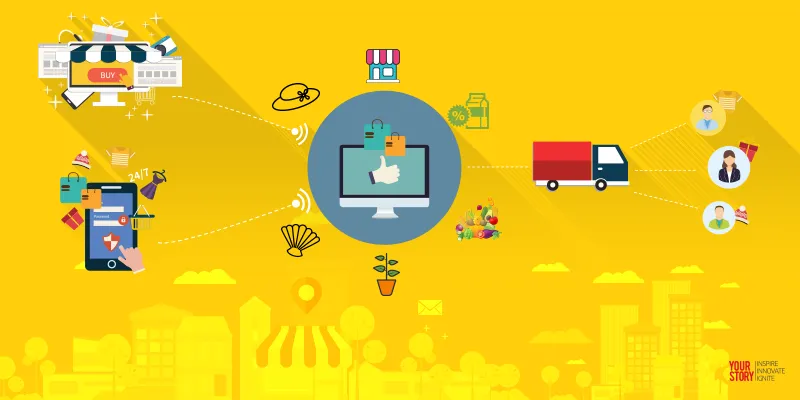
The last time Bengaluru resident Shruti Sabharwal hired a plumber, she was in for a surprise. The plumber arrived at the right time and in under an hour fixed all the taps that were leaking, replaced a faucet and cleared a blocked drain. He pocketed the Rs 250 fee that was mentioned when she booked the service and the invoice arrived in her email inbox.
She had booked the service through Bengaluru-based HouseJoy, an online platform that connects consumers with service providers like plumbers and electricians according to location.
This experience was in stark contrast to her previous run-ins with plumbers. “I didn’t have to keep following up nor did I have to haggle,” says 31-year-old Shruti, partner at design studio Loco-Motive Design Co. “When I dealt with regular plumbers and electricians, they would not turn up for days or the work would be shoddy.”
HouseJoy, backed by serial entrepreneur Krishnan Ganesh’s incubator GrowthStory, is just one of many hyperlocal startups that have come up in the country in the last couple of years. Shruti has since used HouseJoy’s service providers to get her sofas cleaned and for electrical work.
This loyal customer base has caught the attention of investors and about 27 deals has been announced in this industry so far this year.
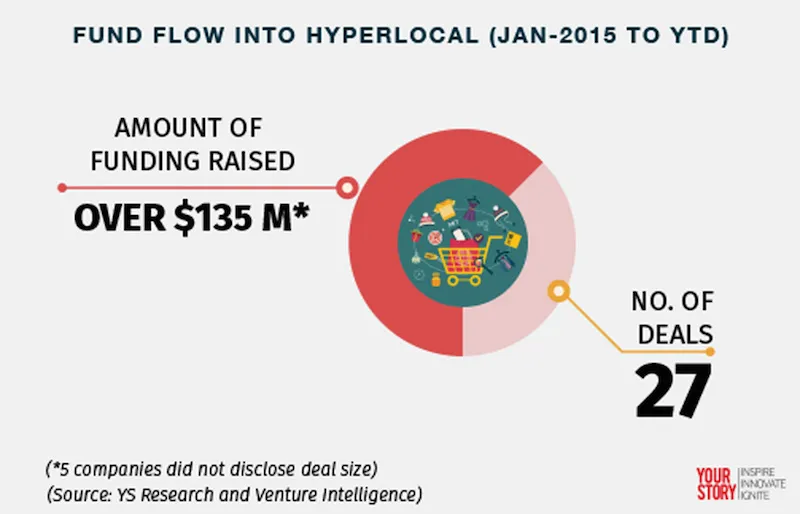
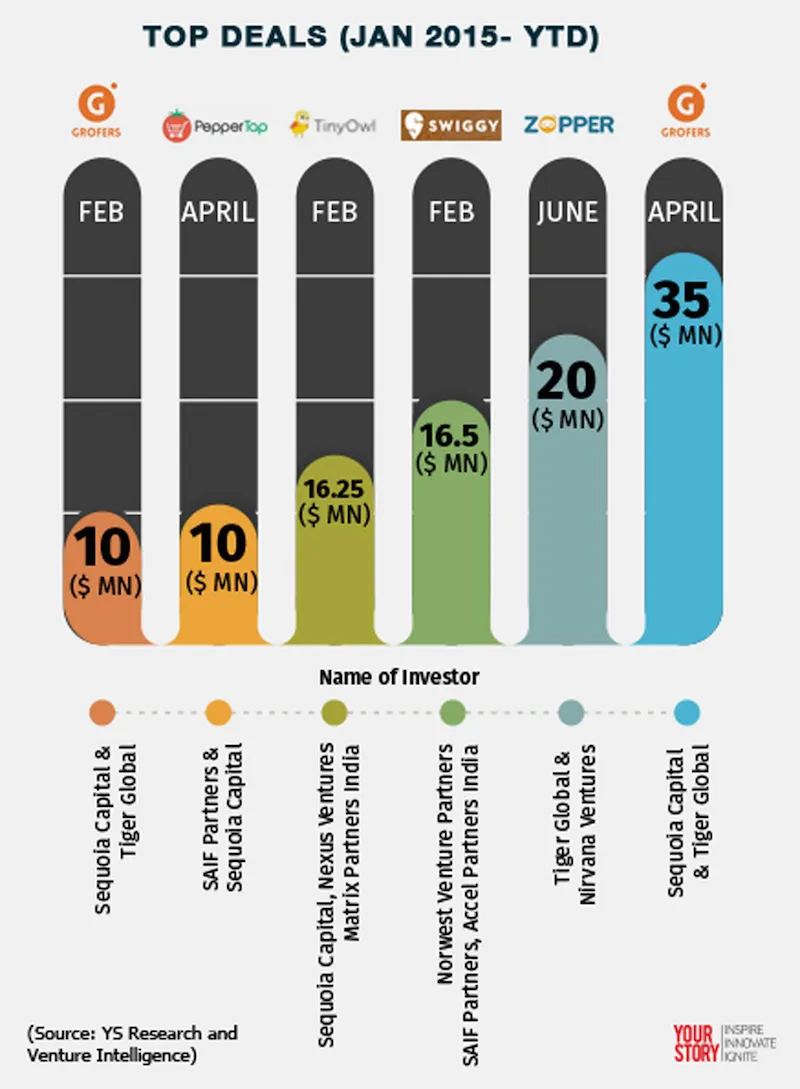
“It’s still early days, but looking at the amount of traction that companies like Grofers are seeing, we believe this value proposition is resonating strongly with customers,” says Abheek Anand, Principal at Sequoia Capital. This year, Sequoia has participated in the fund raising rounds of three hyperlocal companies, food ordering app TinyOwl, grocery delivery service PepperTap and on-demand delivery service Grofers.
The industry has gone through a rapid evolution too in a short span. Firms like LocalOye, Grofers, SpoonJoy, Zopper and Swiggy are attempting to solve a wide variety of daily problems faced by consumers, ranging from getting groceries to finding reliable handymen.
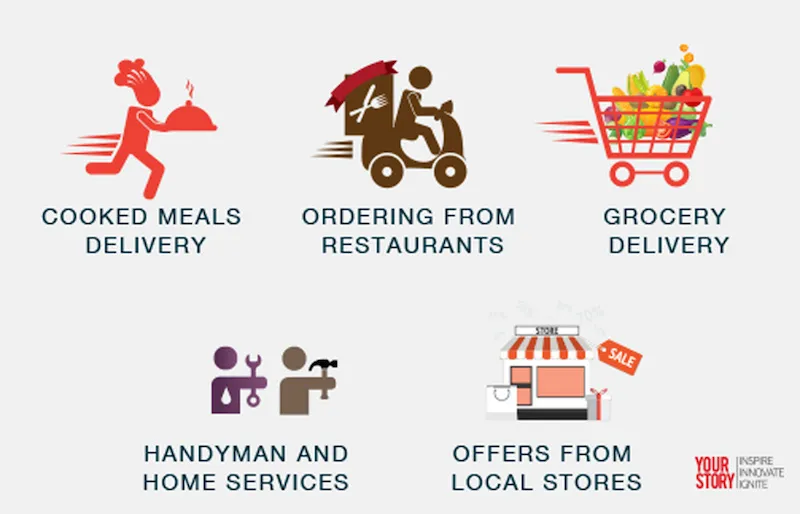
Reasons for Interest
A combination of contributing factors, say entrepreneurs in this industry, has led to this spurt in startup and investor activity. Changing customer behaviour is the primary reason. “Behaviour is tending towards on-demand world over,” says Neeraj Jain, 37, Co-founder of Noida-based Zopper. The company started out as an online product reviews platform Reviews42 in 2011 and evolved into a hyperlocal platform in 2013. The company helps consumers discover products and offers from merchants in their neighbourhood through its mobile platform and even make the final purchase without going to the store. “This change has been fuelled by services like Uber. People have started demanding service when they need it,” Neeraj adds.
In a dramatic shift from even a few years ago, consumers trust the online medium as a channel for transactions. Entrepreneurs running hyperlocal startups acknowledge the market building efforts of the e-commerce trailblazers like Flipkart and Snapdeal. “People have become comfortable transacting on Flipkarts of the world. This is the next step,” says Saurabh Kumar, 31, Co-founder of Grofers. Users can place grocery orders with multiple kirana stores in the locality. Grofers consolidates the orders and handles the delivery.
“Everyone in my family from my father-in-law to my husband shops online. I trust online sites; they are reliable,” says HouseJoy customer Shruti. The numbers back this sentiment. India had 300 million internet users in December 2014, according to IAMAI.
About 40 million consumers purchased something online in the entire year,according to an Assocham-PwC report, and this number is expected to go up to 65 million this year. Indian consumers spent about $22 billion on e-commerce transactions, according to a Deutsche Bank report, and this number is estimated to reach $86 billion in the next three years.
The rapid growth in mobile usage is yet another factor. Mobile owners are not just using their devices for calls or messaging, they are shopping as well. About 11% of all e-commerce sales are through mobile devices.
Beyond mobile usage, it is the actual mobile technology that allows apps to track location and other user information that has helped create the hyperlocal business. “Without mobile there would be no location and no messaging and this model wouldn’t have worked,” says Neeraj of Zopper.
Growth and expansion
With funds flowing in and users giving hyperlocal services a thumbs-up, these fledgling startups are busy investing in growth and expanding their geographic reach.
Bengaluru-based SpoonJoy, backed by Flipkart Co-founder Sachin Bansal among others, is set to launch operations in Gurgaon in June and in Mumbai in July. The company offers its customers a fresh menu each day. Customers can pick the time slot for lunch, snack and dinner and place the order. SpoonJoy’s chefs cook out of eight kitchens spread across Bengaluru and the food is sent to 20 despatch units from where they are sent to customers depending on the location. “We are now getting about 1,800 orders a day and about 50% of our customers order at least two to three times a week,” says 30-year-old Manish Jethani, SpoonJoy’s Founder.
Similarly, Bengaluru-based Swiggy, which links customers with neighbourhood restaurants through its mobile app, is also witnessing rapid growth and is targeting to reach over 10 cities by end of the year. The company has grown from four employees in January to about 400, excluding delivery staff, at present.
Between October 2013 and March 2015, LocalOye has worked with one lakh customers in Mumbai. LocalOye works like a marketplace to some extent, connecting consumers to service providers like yoga instructors or carpenters according to the customer’s requirement. The firm works with about 5,000 merchants in Mumbai and about 1,500 in Bengaluru. The service providers pays for a pre-paid account with LocalOye, which keeps getting deducted as he or she gets a customer.
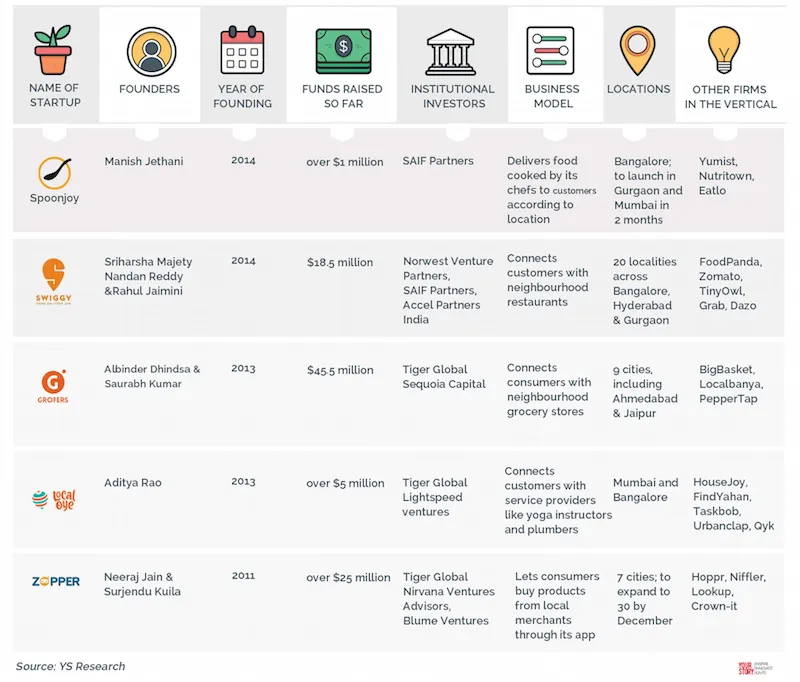
Challenges
Ensuring quality of service and product as the company expands to new locations is among the main challenges in this space that tends to be operationally intensive. “We are focusing on building city leadership and empowering them so the service remains high class,” says Sriharsha Majety, the 29-year-old Co-founder of Swiggy.
These startups are also investing in technology and data to make their processes more intuitive. “In a tech driven process you can instantly know where, if at all, something is going wrong,” says Manish of SpoonJoy. The startup sends a feedback query to customers about three hours after the order has been delivered. “About 35% of our customers give daily feedback and we get to know immediately what is going wrong and get it rectified.”
Future
Hyperlocal entrepreneurs believe theirs is the model of e-commerce that will succeed. “This space will see more companies and the big players will also enter.
Amazon and Ola have entered, so more action can be expected,” says Saurabh of Grofers. Amazon has begun delivering products from kirana stores, while Ola is piloting grocery deliveries.
Zopper’s Neeraj, in fact, says the hyperlocal model is a cost effective way, compared to regular e-commerce, of solving the problem of getting consumers what they need. Zopper, for instance, shows consumers on a mobile screen all the products that they would get in an online store but since the products are from a nearby brick-and-mortar store it reaches the buyer in a few hours. Also, it is the merchant that takes care of logistics and not Zopper.
“We use existing infrastructure like warehouse, infrastructure and logistics. These costs are additional expenses for e-commerce companies,” says Neeraj. “This model will disrupt e-commerce. They (e-commerce companies) won’t be able to compete with the cost structure of hyperlocal.”
Check-out our "The Marketplace" contest to discover the next big marketplace startup!







